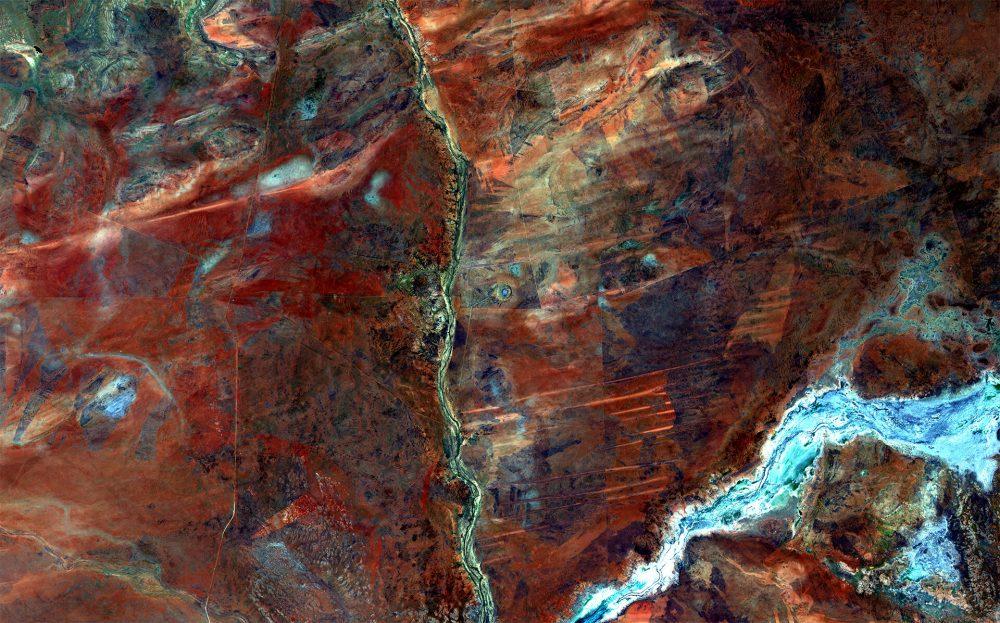Advancing digital sovereignty in northern Australia
Posted By Huon Curtis on November 24, 2020 @ 10:25

To ensure the digital sovereignty of communities in northern Australia, intensive effort is needed to build greater digital capacity and the social infrastructure to enable it.
The region has long suffered from a digital deficit. Bridging the Rubicon of northern Australia’s digital divide with the rest of the country requires significant investment in broadband and telecommunications access in remote areas.
Equally important is the development of digital literacy, programming skills and policy frameworks to make sure that digital technologies work in the best interest of communities.
But northern Australian jurisdictions aren’t just sitting back waiting for the federal government to save the day. And there are big economic opportunities in the digital arena that the Northern Territory is keen to exploit.
For example, the Darwin Data Centre [1] project is trying to leverage Darwin’s proximity to Asia and the fact that Singapore currently has a moratorium on new data centres to reduce energy use. A major advantage of Darwin as a location is that construction costs there are relatively low.
The NT government is planning to leverage the data centre to advance further industrial clusters that will add a new dimension to the territory’s traditional industrial profile of agriculture and mining.
Similarly, digitally dependent energy projects such as the Australian ASEAN Power Link [2]—a massive solar farm between Darwin and Alice Springs connected to Singapore—will stabilise Darwin’s power supply and potentially open up a new avenue of energy export revenue for the region.
While these initiatives are a great start, the federal government needs to invest more in the social infrastructure of the north. One area ripe for further development is skills and education in STEM (science, technology, engineering and mathematics). In doing so, the government could be making a long-term investment in digital sovereignty initiatives by Indigenous Australians.
The concept of digital sovereignty has been advanced in various contexts to capture the interplay between social and digital infrastructure.
Because of the dominant position of digital companies (for example, Google, Apple, Facebook, Amazon) and the increasing presence of Chinese companies internationally (ByteDance, Alibaba, Tencent), the idea first emerged as a way to describe control over various digital domains.
These domains include [3] ‘data, software (e.g. AI), standards and protocols (e.g. 5G, domain names), processes (e.g. cloud computing), hardware (e.g. mobile phones), services (e.g. social media, e-commerce), and infrastructures (e.g. cables, satellites, smart cities)’.
For consumers this means, most prominently, control over data. This does not necessarily entail individualised sovereignty over data, but looks to forms of collective ownership that can be put in place to ensure the collective wellbeing of a particular group.
In Indigenous Australia, this idea is playing out in various [4] initiatives [5] that act to ensure that data is controlled by communities, and is used to strengthen and advance the ability of Aboriginal and Torres Strait Islander communities to make their own decisions about their own development, justice and equality.
The Indigenous Data Network [6], supported by the federal government, aims to improve access to data and information-sharing between government and Indigenous organisations by assisting them to identify local solutions for local issues. There is a crossover here with efforts to include Indigenous knowledge systems in the design and function of AI-enabled systems—such as traditional land management practices in Kakadu [7]—and in projects that seek to combat the overpolicing of Indigenous communities.
But at the most basic level, digital sovereignty means access to digital infrastructure, like mobile phones and internet connectivity in general. As government services and commerce are increasingly app- and web-based, gaps in access prevent remote communities from participating in and contributing to society. The provision of access needs to be accommodated to the ways in which Indigenous people currently use technology. For example, many families in remote areas share phones.
Researchers from the Cooperative Research Centre for Developing Northern Australia recently mapped [8] the priorities to encourage investment in digital connectivity infrastructure and social infrastructure across the north. They found that large parts of the region lacked service and that the high cost of digital access was hampering businesses and communities. The report highlighted an urgent ‘need for digital knowledge and skills to be oriented towards, and taught in, local contexts as it is critical for workforce development’.
The study also identified the lack of an ‘overarching agenda for future-proofing northern Australia’s telecommunication and internet needs’. This is where the idea of digital sovereignty again comes into play. At the government level, access to, control over and regulation of critical digital infrastructure is a central issue, particularly when it comes to 5G and cloud computing.
Building the digital infrastructure of the north will play an important role in boosting the potential application of new technologies in the mineral, gas and agriculture sectors.
In the mineral and gas sectors, the lack of access to skills [9] is one of the major impediments to take-up of new technologies. In agriculture, the National Farmers’ Federation has set an ambitious target of becoming a $100 billion sector by 2030 [10]. However, big goals in these sectors can only be met by more systematic approaches [11] to building digital social and physical infrastructure.
Article printed from The Strategist: https://aspistrategist.ru
URL to article: /advancing-digital-sovereignty-in-northern-australia/
URLs in this post:
[1] Darwin Data Centre: https://business.nt.gov.au/investment-and-major-projects/major-projects-in-the-northern-territory/darwin-data-centre
[2] Australian ASEAN Power Link: https://www.nsenergybusiness.com/projects/australia-asean-power-link-aapl-project/
[3] include: https://link.springer.com/article/10.1007/s13347-020-00423-6
[4] various: https://www.maiamnayriwingara.org/about-us#:~:text=The%20aim%20of%20the%20Maiam,of%20Indigenous%20Data%20Governance%20protocols.
[5] initiatives: https://mspgh.unimelb.edu.au/centres-institutes/centre-for-health-equity/research-group/indigenous-data-network#:~:text=Welcome,their%20data%20for%20community%20advancement.&text=The%20Data%20Network%20is%20led%20by%20a%20Steering%20Committee.
[6] Indigenous Data Network: https://mspgh.unimelb.edu.au/centres-institutes/centre-for-health-equity/research-group/indigenous-data-network
[7] in Kakadu: https://algorithm.data61.csiro.au/ai-indigenous-knowledge-a-powerful-tool-posing-critical-questions/
[8] mapped: https://eprints.qut.edu.au/200716/7/CRCNA_Report_Final_NA_Communications_Analysis_Directions_paper_July_2020.pdf
[9] lack of access to skills: https://www.australianmining.com.au/oil-gas/resources-oil-gas/the-future-of-mining-technology-at-a-glance/
[10] $100 billion sector by 2030: https://nff.org.au/wp-content/uploads/2020/02/Talking-2030.pdf
[11] systematic approaches: https://www.crdc.com.au/sites/default/files/CRD18001-001%20CRDC%20P2D%20Report%20low%20res.pdf
Click here to print.